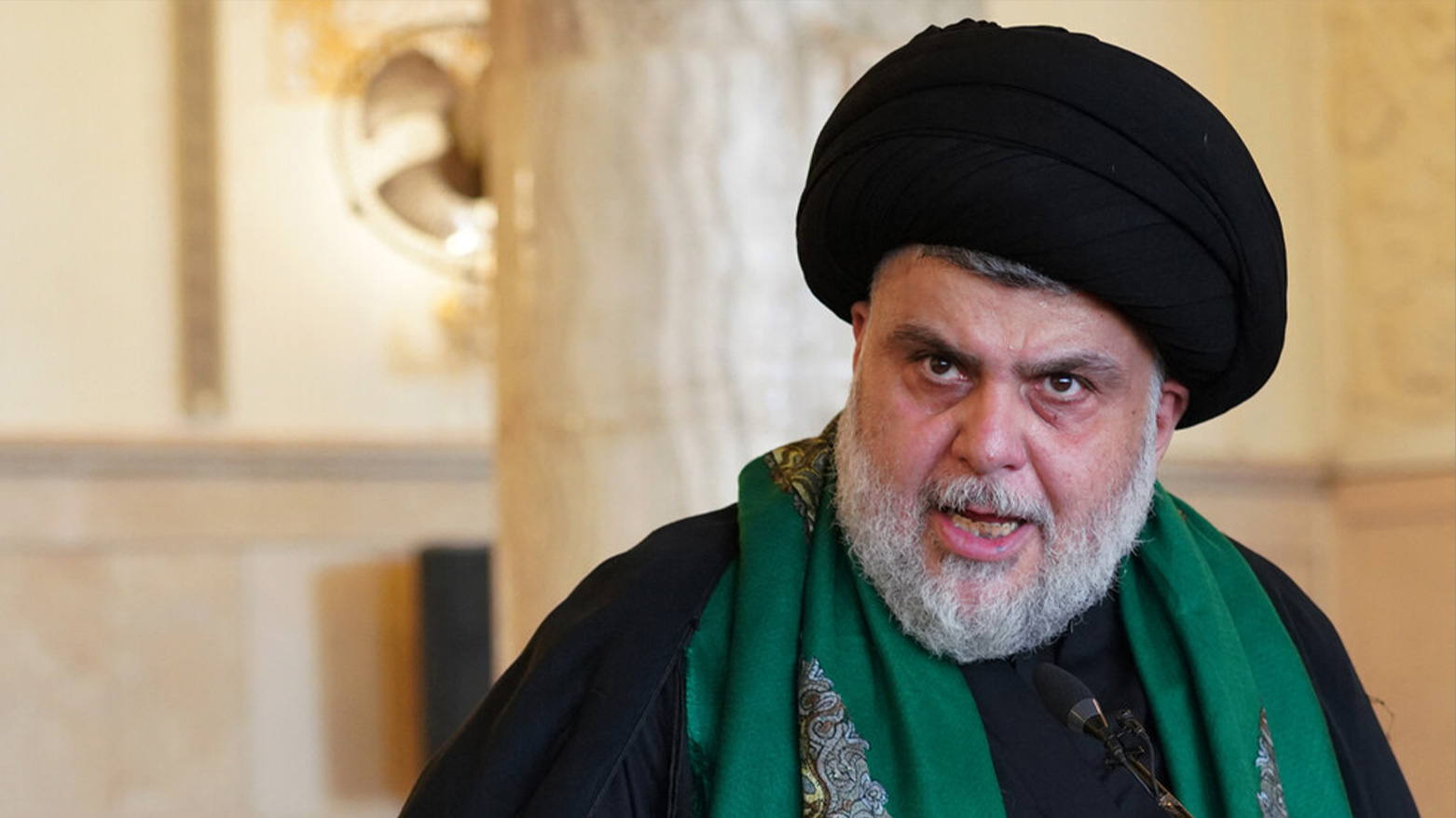Sadr Urged to End Election Boycott to Avoid Power Imbalance
Vian Sabri, head of the Kurdistan Democratic Party bloc in the Iraqi Parliament, noted that Sadr’s non-participation would “significantly impact the political process.” She emphasized the movement’s centralized and decisive leadership as essential for future reforms.

By Kamaran Aziz
ERBIL (Kurdistan24) – With Iraq’s parliamentary elections scheduled for October, mounting political pressure is building on Shiite nationalist leader Muqtada al-Sadr to reverse his decision to boycott the vote, amid concerns that his absence could destabilize the country’s already fragile political landscape.
A wave of appeals from political leaders, lawmakers, and civil society figures has urged the Sadrist movement – renamed to National Shiite Movement – to reconsider its stance, warning that continued abstention could lead to a dangerous imbalance of power in parliament and open the door for unchecked dominance by Iran-aligned factions.
The calls come as Iraq’s Independent High Electoral Commission (IHEC) continues preparations to hold the elections under Iraq’s amended electoral law.
Commission spokesperson Jumana al-Ghalay confirmed that over 29 million voters have been registered so far, and that the process is proceeding under the effective Elections Law No. 12 of 2018. However, ongoing legal disputes—particularly surrounding the Sainte-Laguë seat allocation method—have triggered fresh demands for electoral reform.
Multiple MPs, including Amal Attia, Sarwa Abdul Wahid, and Arshad al-Salihi, have stressed the importance of the National Shiite Movement in providing a necessary counterbalance within the legislative process.
“The presence of the Sadrist movement [National Shiite Movement] offers a vital counterweight to entrenched forces,” Attia said, warning that its exclusion could lead to the marginalization of opposition voices in parliament.
Similarly, Vian Sabri, head of the Kurdistan Democratic Party bloc in the Iraqi Parliament, noted that Sadr’s non-participation would “significantly impact the political process.” She emphasized the movement’s centralized and decisive leadership as essential for future reforms.
A senior figure in the National Shiite Movement told local media that any return to the political arena would require direct approval from Muqtada al-Sadr. However, he emphasized that such a return would not entail alignment with the Coordination Framework, the ruling Iran-backed Shiite coalition.
While al-Sadr has rejected any formal alliance with the bloc, he has not ruled out working with select factions within it, consistent with his vision of a nationalist-majority government.
Al-Sadr’s own statements have remained firm. In a recent declaration, he said: “Praise be to God who saved us from the corrupt people... As long as corruption exists, I will not participate in a lame electoral process that is only concerned with sectarian, ethnic and partisan interests.” He reiterated his command to his supporters not to run or vote, branding participation in such a system as “assistance in sin.”
Despite this, analysts believe the window for a political return remains open. According to political analyst Rafid Atwani, Iran is quietly working to unify Shiite factions under al-Sadr’s leadership in a bid to preserve Shiite political dominance in Iraq. “Iran has a strategic plan for Iraq and aims to consolidate Shiite forces under al-Sadr’s authority,” Atwani explained. “Al-Sadr is well-positioned to fill the vacuum left by Tehran’s shifting role in Baghdad.”
Read More: Muqtada al-Sadr and Iraq’s Next Elections: A Strategic Return or Tactical Absence?
That shift is being catalyzed by growing U.S. pressure. Since President Donald Trump’s return to office, Washington has escalated efforts to limit Tehran’s influence over Iraq’s governance. Using economic sanctions, diplomatic leverage, and the threat of military pressure, the Trump administration is pushing Baghdad to disarm Iranian-backed militias and bolster Iraq’s sovereignty.
Read More: Battle for Iraq: U.S. Pressure Sparks Shiite Political Showdown Ahead of 2025 Elections
In this context, al-Sadr’s past calls for limiting weapons to official Iraqi forces have taken on renewed significance. In a January post on X (formerly Twitter), he wrote: “No and a thousand no’s to uncontrolled weapons and uncontrolled groups,” affirming his support for the Iraqi army and the rule of law.
Read More: ‘No to uncontrolled weapons and uncontrolled groups’ Muqtada al-Sadr
Tensions over the elections have also led to speculation that some parties, particularly within the Coordination Framework, may seek to delay the vote. Reports suggest that influential leaders like Nouri al-Maliki and Hadi al-Amiri have expressed concerns that current political conditions could weaken their influence. Maliki is said to have warned that holding elections now would be “political suicide” for some factions.
However, Ali Fatlawi, a senior member of the Coordination Framework, has denied these claims, affirming that the coalition remains committed to holding the elections as scheduled. “There is no political or governmental necessity to delay the election process,” he stated.
The electoral outlook remains uncertain, particularly as legal and political disputes continue to unfold. Yet one thing is clear: the participation or absence of Muqtada al-Sadr and his movement will be a defining factor in shaping Iraq’s future government and determining the balance of power between nationalist and Iran-aligned forces.
As Iraq edges closer to the October vote, the stakes could not be higher. With pressure mounting from both domestic and international actors, the coming weeks may determine whether Iraq can take a step toward political stability—or fall deeper into division and volatility.